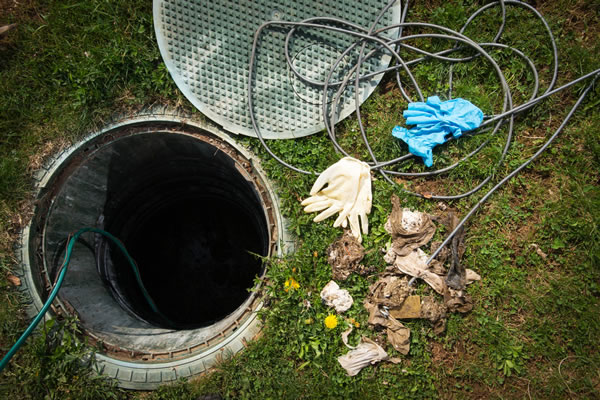
Septic system maintenance is an essential task for any homeowner or business owner who relies on a septic system to manage their wastewater. And, during the rainy season, this maintenance becomes even more important. Heavy rainfall can have a significant impact on septic systems, which can lead to costly repairs and even system failure. Learn how to properly maintain your septic system during the rainy season and gain insight on tips for keeping your septic system in good working order.
One of the most important steps in septic system maintenance is regular pumping. Septic tanks should be pumped every three to five years, depending on the size of the tank and the number of people using it. However, during the rainy season, septic tanks can fill up faster than usual and may need to be pumped more frequently to prevent backups and other issues. A septic company in Stockbridge can help you determine the appropriate septic tank pumping schedule for your system based on your specific needs.
Another key component of septic system maintenance is monitoring the drain field. The drain field is the area where wastewater is dispersed after it leaves the septic tank. Heavy rainfall can saturate the soil in the drain field, which can lead to backups and other problems. To avoid these issues, it's important to monitor the drain field during the rainy season and address any issues promptly. If you notice standing water or a foul odor in the drain field, contact Rooter Septic Services right away.
In addition to regular septic tank pumping and monitoring the drain field, there are other steps you can take to keep your septic system functioning properly during the rainy season. One of the most important is conserving water. During heavy rainfall, the ground is already saturated, which means that any additional water from your household can overwhelm your septic system. By reducing water usage, you can help prevent backups and other issues. This can be achieved by taking shorter showers, fixing leaky faucets, and running dishwashers and washing machines only when they are full.
Another way to maintain your septic system during the rainy season is to be mindful of what you flush down the toilet and pour down the drain. Flushing non-biodegradable materials, such as paper towels and feminine hygiene products, can cause blockages in your septic system. Pouring grease and other cooking oils down the drain can also cause clogs and backups. To prevent these issues, make sure that everyone in your household knows what can and cannot be flushed or poured down the drain.
Finally, it's important to have your septic system inspected by a professional septic company on a regular basis. A septic company can identify any potential issues with your system and address them before they become more serious. During the rainy season, a septic company like Rooter Septic Services can also provide guidance on how to best maintain your septic system in the face of heavy rainfall.
During the rainy season, the maintenance of your septic system becomes even more important, as heavy rainfall can have a significant impact on septic systems. To keep your septic system functioning properly during the rainy season, it's important to have your septic tank pumped regularly, monitor the drain field, conserve water, be mindful of what you flush and pour down the drain, and have your septic system inspected by a professional septic company. By following these tips, you can help ensure that your septic system continues to operate efficiently and effectively, even during the heaviest rainfall.